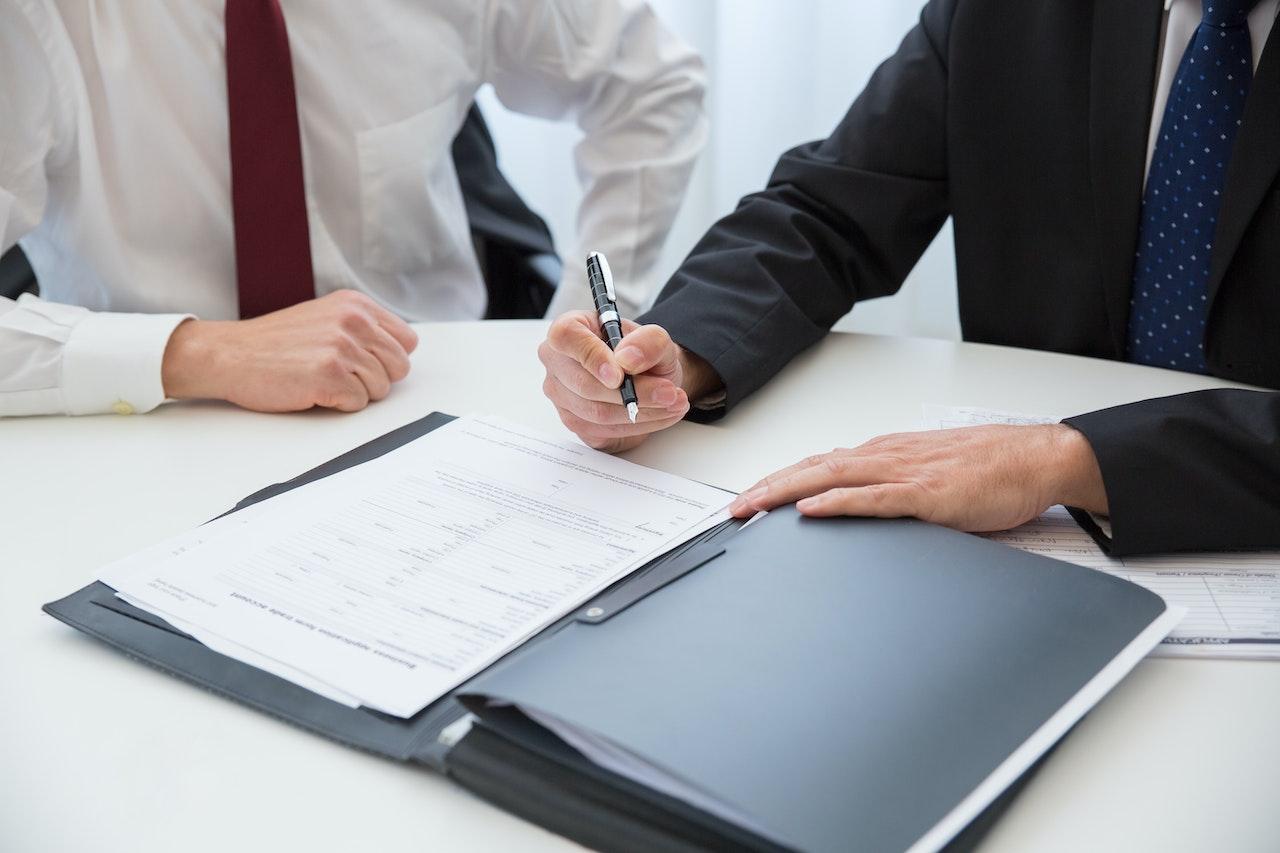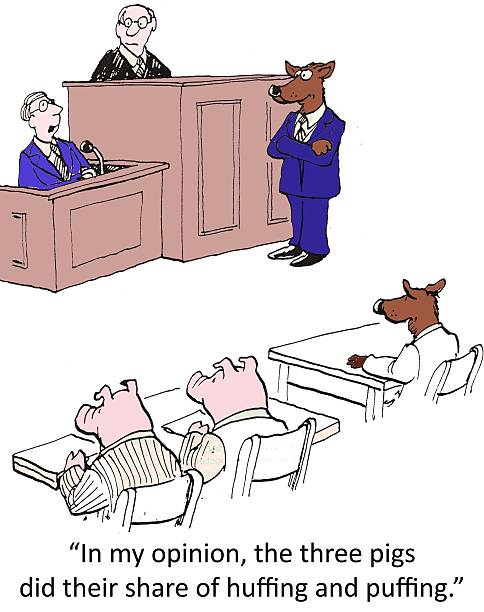An Expert Warning

Don’t let an ill-chosen expert spoil all your good work. Experienced expert witness Chris Makin offers a checklist of experts to avoid.
In appointing an expert witness, the first question you should ask is whether this person spends all their time as an expert witness. If so, proceed with caution.
A retired medical professional who seeks to supplement their pension with expert witness assignments may quickly fall out of date; other specialisms similarly may need someone who actually does the job, as well as propounding about it.
- Beware the expert requiring an advance retainer
Clients don’t sign blank cheques anymore, if they ever did. Far better is the method I use: an initial review of any case, without obligation to instruct me, and with no charge at all if the matter does not proceed. Thus, the instructing solicitor has no commitment to me and has incurred no fees with me, until I have seen the key documents, provided a typed initial review of the case, and said how much a report is likely to cost. That is good business for me, since in the vast bulk of cases my initial report shows that I understand the issues and leads to confirmed instructions. And on the rare occasions where I am not instructed, I don’t even sulk!
- Avoid the specialist who is difficult to reach
If the specialist doesn’t return calls or emails, or if a secretary is protecting him from interruptions, or if you need to give 72 hours notice for a telecon, find someone else! Litigation can be fast-moving as we all know, with tight deadlines. What if a Part 36 offer is about to expire, and you need your accountant expert to tell you if he thinks it is reasonable or not? I work alone, I answer the phone, and you will get an answer from me within a few hours. Of course, if I’m in court or doing a mediation it may be later in the day; but I appreciate the need for rapid access, and I respect it.
- How will your expert look to the judge?
First impressions in any situation are vital. An expert who turns up for a conference with counsel in jeans and a dirty sweater, or even without a tie, may think this is acceptable in a courtroom. It isn’t.
Similarly, does the expert appreciate that their function is to assist the court – that is, to explain complex matters to the informed layman, the judge or jury – or do they consider that their function is to maintain the mystique of their profession? Can you understand what the expert is talking about? If not, this isn’t the expert for you.
- Does the expert have courtroom experience?
I have often found myself ranged against an accountancy expert on the other side who didn’t have the first idea about CPR 35, FPR 25 or CrPR 33. They thought that their function was for their side to win at all costs, with their help. I joined the committee of the ICAEW Forensic Group, and we worked for seven years to devise an accreditation scheme for forensic accountants and expert witnesses. I was in the first group to become accredited, and there are still only 100 of us out of the 145,000 chartered accountants who have gained this kite mark – it’s stiff! So if you want a chartered accountant who knows what he is doing in this second profession of being an accomplished expert witness, this is the snappy address to put in your browser, Or google ICAEW forensic accountant and look for Register. You will find a list of specialisms, with a list of those of us who have reached this high standard.

- Look at the expert witness’s adverts
If there is any suggestion of helping you to win cases, or of “gun for hire”, beware! I remember an orthopaedic surgeon who regularly lectured while dancing with a skeleton, and convinced defence solicitors and insurers that whiplash did not exist. Unsurprisingly, he acted only for defendants and he was very busy. But he became tainted and such experts now have no place in the courtroom. Look for an expert who acts in broadly equal measure for claimants and defendants or, increasingly in family matters, as an SJE. Hot tub experience is good too.
Look for an expert who can take the balanced view. I act as a mediator and as an expert determiner. I can usually pinpoint the strengths and weaknesses of a case, which puts me in a good position to discuss whether to run the case, or how to settle on best terms.
- Read up on the expert’s published opinions
See what the expert has added to the literature. Have they, for example, taken a strong line in an article published in the legal press, yet be attempting to take the opposite line on your case with similar facts? This could be very embarrassing when the expert comes to be cross-examined. Google the expert’s name and read their website. I, for example, have a series of blogs and a long section on the sorts of cases on which I have worked – for both sides. Why not have a peep?
- Check the expert’s disciplinary record and any reported cases
If the expert has been found wanting by his peers, avoid him. If he has been criticised by a judge, a fortiori! One of my duties is to sit on the Investigation Committee at The Academy of Experts. Recently a judge had severely criticised an expert, so that matter came to us. There were two sides to the case, and of course the expert has no right of reply to a judge’s criticism, but it is on record. We advised the expert that he must tell all solicitors who now approach him that he has been criticised by a judge, but that he has undertaken additional training so that this doesn’t happen again. Maybe he will not receive the same number of instructions, but far better that, than that his next case collapses when he is cross-examined by the opposing side who have done the homework you should have done.
- The expert changes his mind between initial opinion and testimony
This can be very nasty. Limit this risk by giving your expert full information at the earliest opportunity. If he still lets you down, use others in future. As for the expert who changes his opinions when other evidence shows that he should reconsider them, give that expert the respect he deserves.
- Match your expert’s speciality or sub-speciality with his opponent’s
An important stage in civil litigation is the joint meeting of experts, and I prepare for such meetings just as carefully as for a trial. However, if the opposing experts are from different professions, or have specialised differently, that can be a waste of time.
Whilst I profess expertise on many aspects of accountancy, I have not been a registered auditor for many years. There is no point in asking me to apply the Bolam test in an auditor’s negligence case; and I would tell you so as soon as you approached me. There are so many sub-specialisms that it is essential to choose the right one – no point in choosing an expert in the follicles of the left nostril if the case is about the right nostril!
- Some horror stories
On my website, I include an article titled: “Choose your expert with care”, which starts with a sign in a Boston shoe repairer’s window: “Fast Service – High Quality – Low Price – choose any two.” Please don’t choose your experts like this!
In 2015 there was a blatant example of the “expert” who failed in every respect. The case was Van Oord Ltd & Anr -v- Allseas UK Ltd [2015] EWHC 3074 (TCC), where Mr Justice Coulson took pains to explain the twelve – yes, twelve! – respects in which an expert had failed in his duty.
More recently, in May, Steven Sulley and seven others were accused of fraud in selling voluntary carbon credits (and diamonds) to more than 70 victims. Those investors lost £3.5m. The crux of the charges was that there was no market in voluntary carbon credits, so the victims had been sold “investments” which could not be realised.
The expert witness for the prosecution was one Andrew Ager, who it emerged had attempted to dissuade the defence expert, Dr Marius Cristion Frunza (who holds a PhD from the Sorbonne) from giving evidence. This is serious, but Mr Ager went on to demonstrate a litany of additional failings.
At Southwark Crown Court Mr Justice Nicholas Loraine-Smith directed the jury to return not guilty verdicts, and the eight accused walked free. The CPS said they had removed Andrew Ager from their list of approved experts.
Did it end there? Certainly not. It emerged that the same Andrew Ager had been the prosecution’s expert witness in 20 previous trials, so where any convictions had been achieved would now have to be reviewed. That means that far more than the 70 victims in the current case may find that those who have taken away their savings will not be punished. The moral is clear, and the CPS failed miserably in following it: choose your expert with care.
